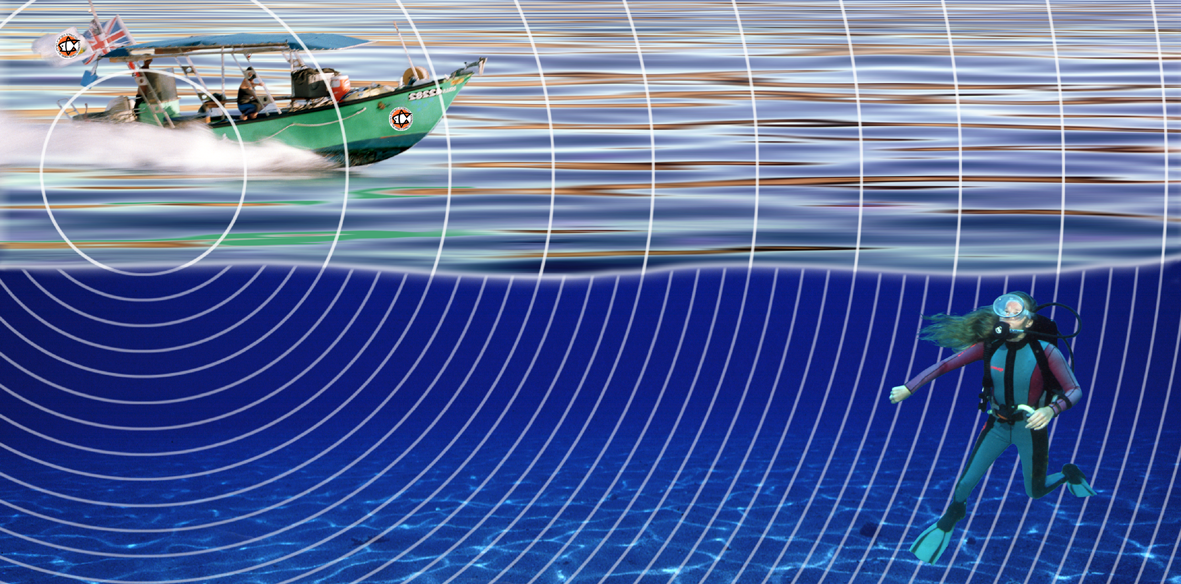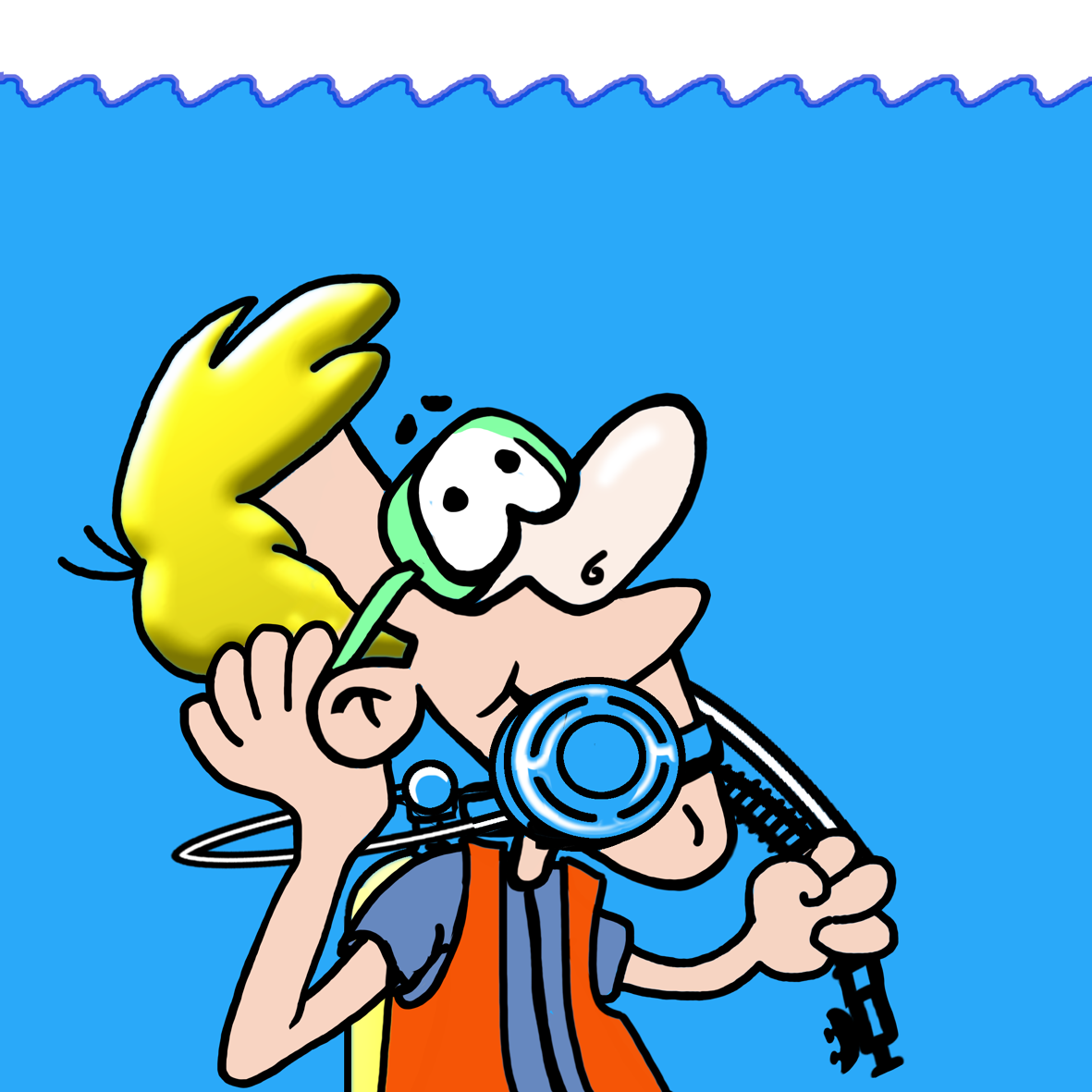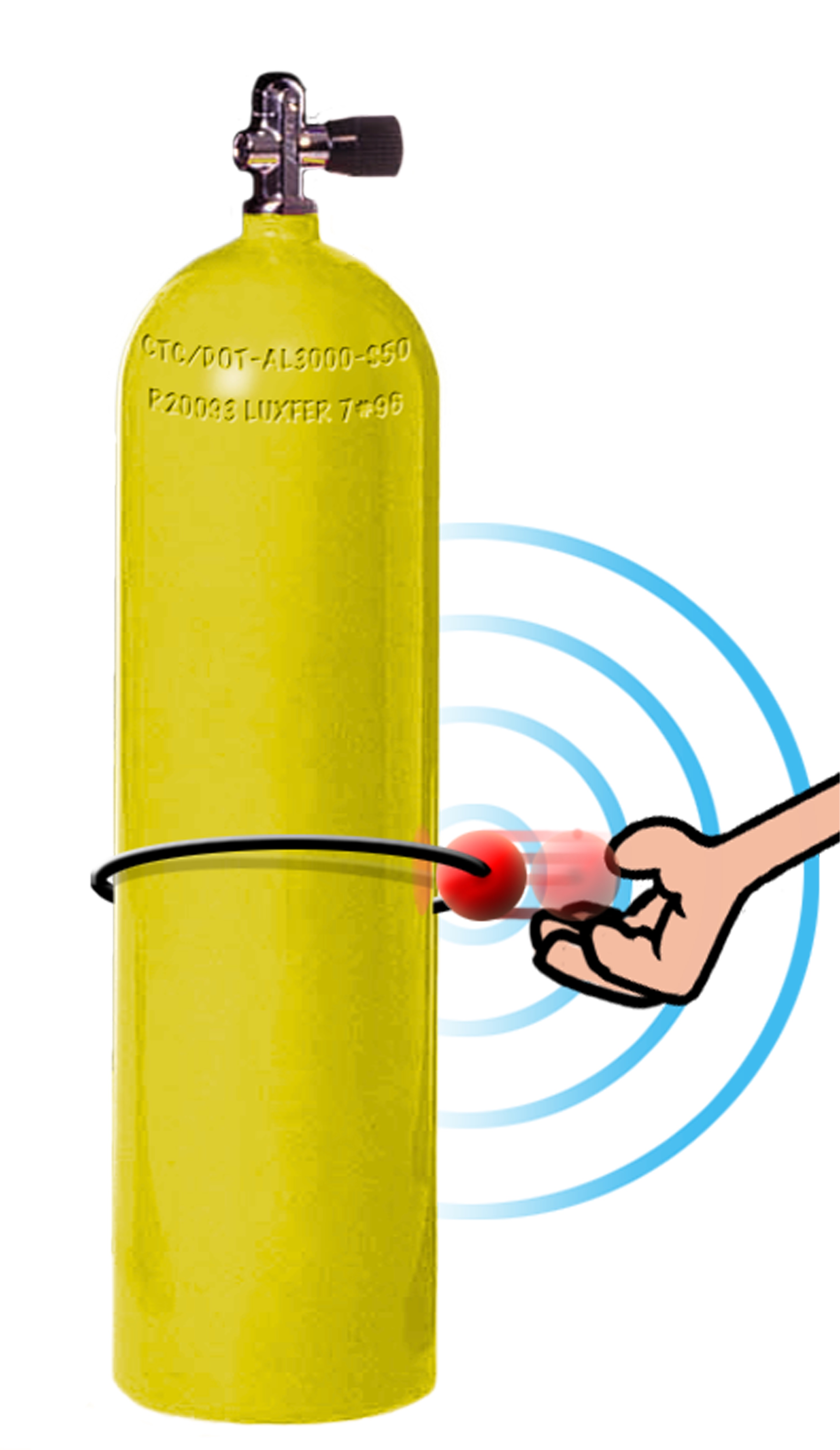Distortion of sound: Water is quite a good sound conductor. The speed of sound in water is about four times more than in air.
In normal conditions, on land, we locate the direction the the sound comes from, based on the time difference from the moment the sound wave reaches one ear, to the moment the sound wave reaches the other ear. The brain translates this tiny difference into the direction the sound came from. The greater speed of sound underwater causes the time difference to be so small, that the brain is unable to translate the direction the sound came from quickly enough. Therefore, we hear sounds very well under water, but cannot tell where it coming from.
Sounds underwater are well heard, but they sound as if they're coming from all directions at the same time. This fact causes difficulty when attempting to spot the movement of boats on the surface. The diver hears the sound of a boat well, but doesn't know where it is. Due to the good sound conduction of the water, a faraway boat may sound as if it is right above you. In fact, the only information you can get about the boat's movements while underwater has to do with the volume of sound. You will notice a rise in the volume when the boat gets closer and a decline when it distances itself. In any case, as we know – sight is better than sound.
Before ascending to the surface, stop at 3 meters, wait and listen, and only then ascend with your arm stretched up, protecting your head, looking in all directions. After reaching the water surface, look around and make sure there is no movement in your direction.
Only afterwards can you fill your B.C, take off your mask and remove the regulator.

Sound waves are nearly not transferred directly from air to water, which is why a diver that is completely immersed in water cannot hear sounds created in the air. This is possible only if the source of the sound is near him, when part of it is underwater and part is above water. Only in such a way can one hear the sounds this body is transferring from the air to the water. Talking to each other underwater (without artificial means), is inefficient. The regulator, which is in the mouth, disturbs speech and words will sound unclear. This is why communication between divers in recreational diving is executed with the use of hand signals.


Many divers find it hard to communicate with hand signals when the dive buddy isn't looking at them. In order to attract the dive buddy's attention, you can tap your open palm on a fisted palm, though this requires some practice.
Another possibility is using a knife or stone to tap on the tank – the metal clink is well heard underwater. Enthusiastic divers equip themselves with a rubber band that has a big bead threaded on it, and can be attached to the bottom part of the tank. Pulling the bead and letting it go sounds a noticeable metal clink that will make your dive buddy give you his full attention.
It is not possible to copy content from this course.
If the course is interesting you can share it with your friends
In order to take the following knowledge exem,
you must review all the topics of this chapter
In order to move on to the next chapter
You must pass the previous chapter exam.
In order to start the final exam
You must complete the entire course
To move on to the next chapter
You are required to pass the exam for this chapter.
This content can be viewed
Only by purchasing the full course
purchase this course